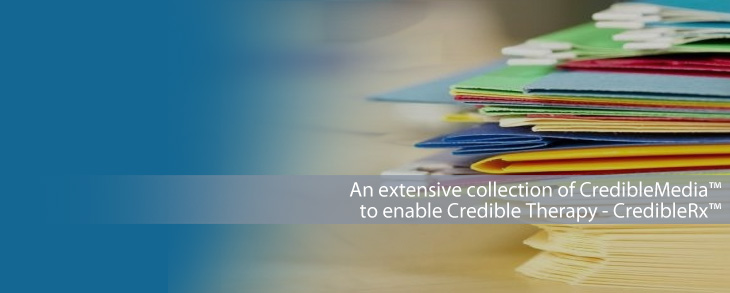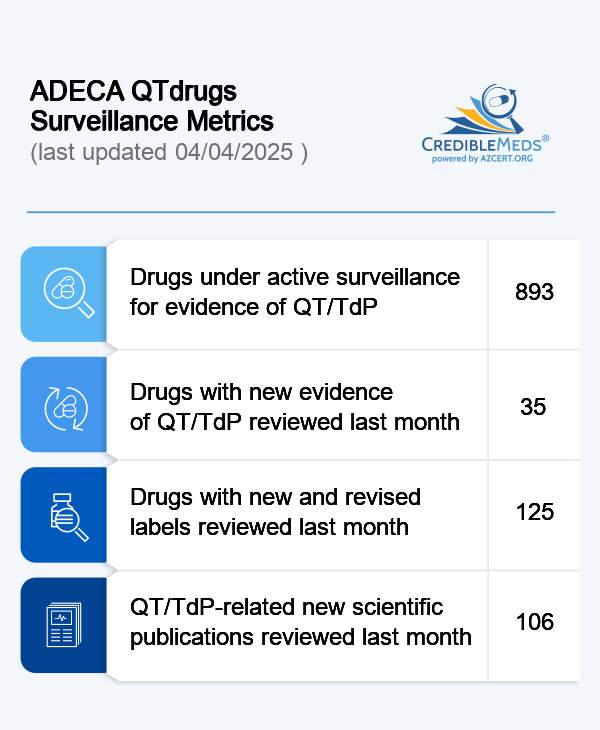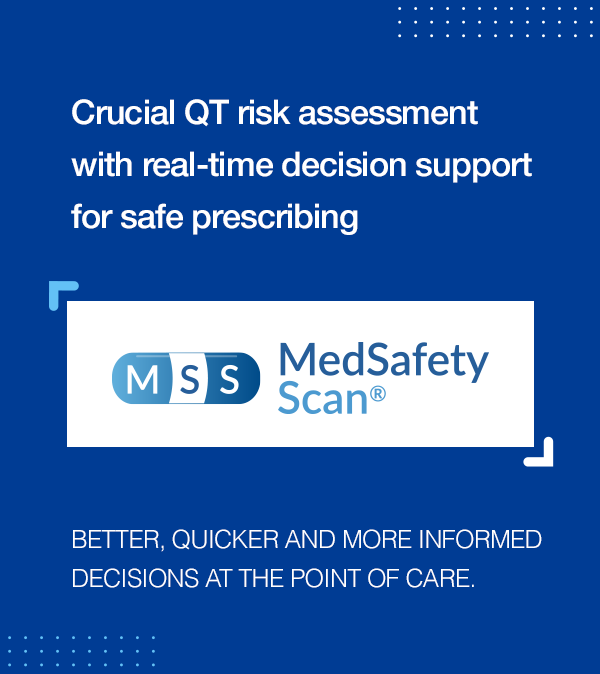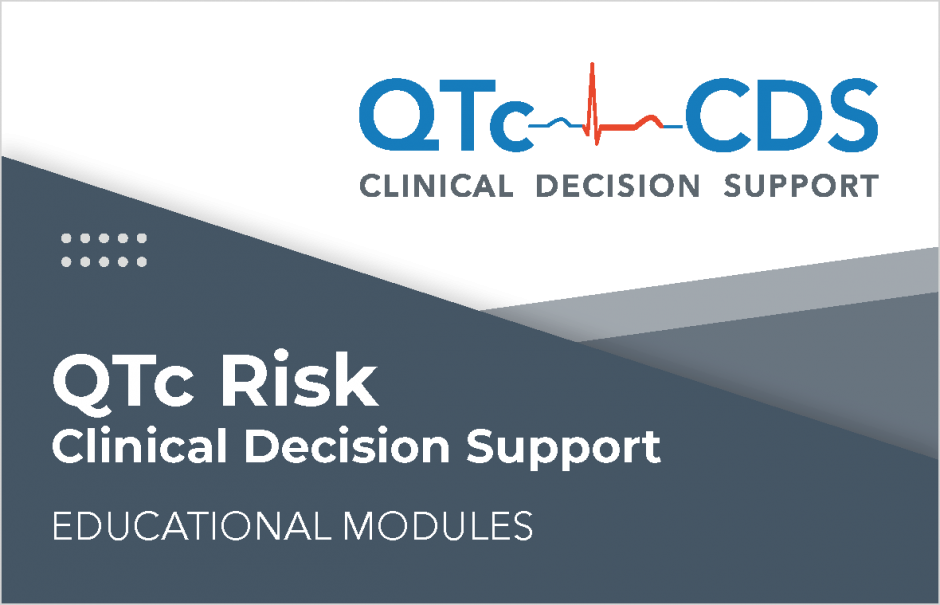Congenital LQTS and Drugs to Avoid List
There are over 290 medicines on the Drugs to Avoid (DTA) list for patients with Congenital LQTS (CLQTS). Avoidance may not always be possible because many patients have conditions that require treatment with these drugs and safe alternatives are not available. Because there are at least 17 different genes associated with CLQTS, some patients may respond differently to these drugs and be safely treated with some of the drugs on the DTA list. Determining which patients can be prescribed these medicines requires special medical expertise and often involves close monitoring of the QT interval. The following information is provided to help patients, family members and healthcare providers to make these decisions and interpret the different categories of drugs on the DTA list.
![]() Known Risk of TdP: These drugs should only rarely, if ever, be given to patients with CLQTS because the danger is clear. However, when no alternative safe drug is available and the illness is severe, some patients with CLQTS may be treated by physicians with expertise in the treatment of arrhythmias.
Known Risk of TdP: These drugs should only rarely, if ever, be given to patients with CLQTS because the danger is clear. However, when no alternative safe drug is available and the illness is severe, some patients with CLQTS may be treated by physicians with expertise in the treatment of arrhythmias.
![]() Possible Risk of TdP: These drugs have been found to increase QT intervals in some patients and for that reason could theoretically be dangerous in CLQTS. However, if the drugs are medically necessary, they may be prescribed by medical specialists for patients with CLQTS.
Possible Risk of TdP: These drugs have been found to increase QT intervals in some patients and for that reason could theoretically be dangerous in CLQTS. However, if the drugs are medically necessary, they may be prescribed by medical specialists for patients with CLQTS.
![]() Conditional Risk of TdP: Most of these can be prescribed safely for many patients with CLQTS because the drug’s risk is confined to certain conditions, e.g. overdose, excessive duration of treatment, use with diuretics or drugs that block their elimination, or patients with other risk factors.
Conditional Risk of TdP: Most of these can be prescribed safely for many patients with CLQTS because the drug’s risk is confined to certain conditions, e.g. overdose, excessive duration of treatment, use with diuretics or drugs that block their elimination, or patients with other risk factors.
![]() Drugs to Avoid in CLQTS: This is a list that includes all of the drugs in the three above categories and additional drugs that do not prolong QT but have a theoretical risk of causing arrhythmias in some CLQTS patients because they have adrenaline-like effects. Many of these medicines are necessary for treatment of asthma, ADHD or nasal congestion. Physicians with expertise in the treatment of arrhythmias may prescribe these medicines to carefully selected patients with CLQTS.
Drugs to Avoid in CLQTS: This is a list that includes all of the drugs in the three above categories and additional drugs that do not prolong QT but have a theoretical risk of causing arrhythmias in some CLQTS patients because they have adrenaline-like effects. Many of these medicines are necessary for treatment of asthma, ADHD or nasal congestion. Physicians with expertise in the treatment of arrhythmias may prescribe these medicines to carefully selected patients with CLQTS.











